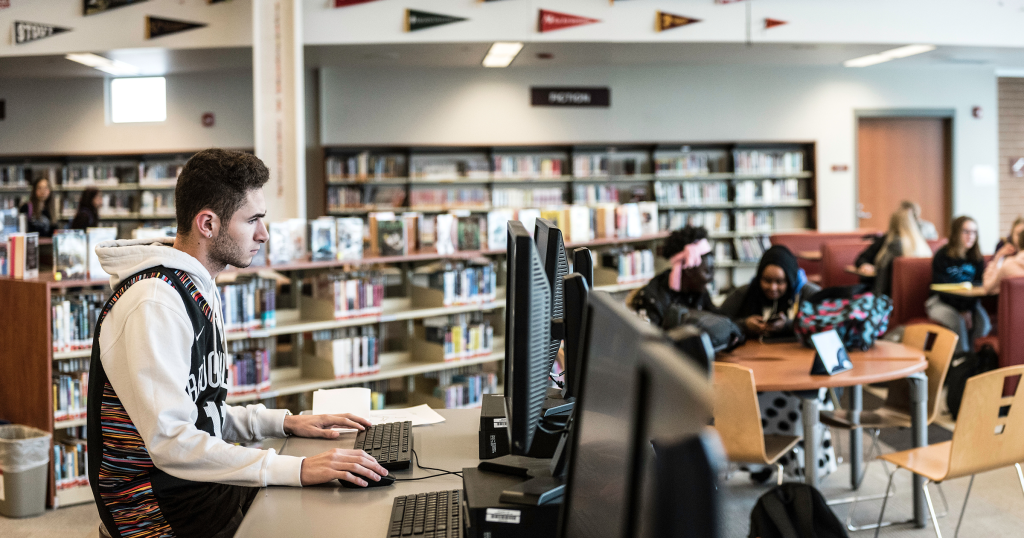Two months into Minnesota’s legislative session we have a clearer picture of the education policy landscape. The omnibus education bill has taken shape as has legislation representing Governor Walz’s education priorities.
Today, we look at two pieces of legislation we’re supporting—and why.
Moving away from seat time
Schools must provide 1,020 hours of instruction for high school students each year (less for younger students). Our mental models of “what school should look like”, as we’ve written before, are unfortunately steeped in the outdated concept of seat time.
New bipartisan legislation (HF 2726/SF 3744) would expand what counts as hours of instruction for high schoolers beyond that traditional measure. If adopted, Minnesota would codify innovative learning opportunities—such as supervised internships, blended, digital, project-based, work-based, and service learning—as legitimate components of a quality education.
The bill text authorizes districts to determine their own educational process, provided it is:
“designed to support students to be prepared to succeed and lead by having the knowledge and skills to learn, engage civically, and lead meaningful lives through implementation of evidence-based practices, quality instruction, and personalized learning supports.”
Throughout the pandemic, teachers have adapted instruction to be accessible for all students. They’ve found new and creative ways to track student progress with seat time out the window. We cannot limit such innovation to only our crisis response. Looks like lawmakers agree.
This legislation opens a personalized pathway to academic success for all students. One that is flexible, engaging, and relevant to their lives—on which they can advance anytime, anywhere.
Toward a focus on outcomes
The governor’s education finance bill (HF 4300/SF 4113) comes out strong for personalized, competency-based education. This learning approach focuses on outcomes—mapping to the pace of students’ mastery of knowledge and skills—instead of moving lockstep through time-based lessons and grades.
Competency-based education gives students equitable opportunity to attain and showcase learning where traditional approaches fall short. And it can be a lifeline for those facing disruption, hardship, or who struggle with traditional school.
EE has long advocated that Minnesota authorize and support schools and districts looking to develop competency-based learning pathways. This legislation makes that a reality.
Specifically, it permits schools to:
“adopt a locally developed competency-based education plan to allow students to satisfactorily complete both required academic standards … and advance to higher levels of learning by demonstrating mastery of required state standards, regardless of the time, place, or pace of learning.”
The bill also proposes $6.65 million for planning grant dollars to encourage schools and districts to pursue a competency-based approach.
EE supports legislation that eliminates rigid expectations set around outdated learning models, in favor of flexible innovations we know serve students better.
What’s next?
In the coming weeks we’ll share more about other legislation we’re following, including a bill supporting ethnic studies in Minnesota.
Sign up to receive Education Evolving blog posts by email.
